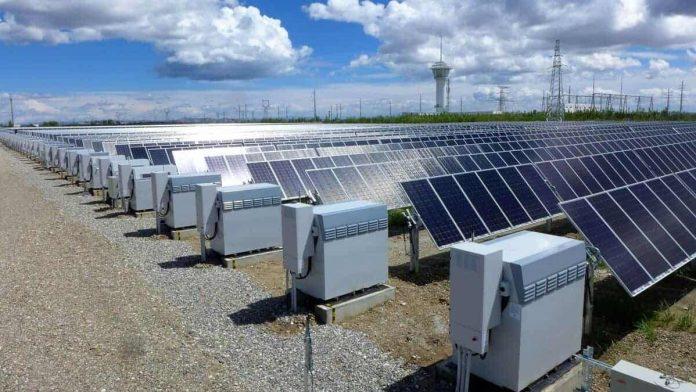In today’s rapidly advancing world, telecommunication is pivotal in connecting people and powering digital communication. Behind the seamless operation of this industry lies an essential component: telecom battery. However, the increasing demand for reliable and uninterrupted communication, coupled with the need for sustainable energy solutions, has given rise to the emergence of commercial energy storage systems. This blog post explores the significance of telecom batteries and how commercial energy storage systems are revolutionizing the telecommunication industry.
Telecom Batteries: Powering Seamless Communication
Telecom batteries serve as the lifeblood of the telecommunication industry, providing reliable power backup to ensure uninterrupted communication services. These batteries are designed to withstand power outages, natural disasters, and grid failures, allowing telecommunication networks to function even in challenging circumstances. Telecom batteries store energy during periods of low demand and release it during peak usage, ensuring a consistent power supply.
One of the critical aspects of telecom batteries is their ability to offer extended backup power. As the reliance on telecommunication services continues to grow, businesses and individuals alike require uninterrupted connectivity. Telecom batteries deliver reliable backup power, enabling emergency calls, data transfer, and internet access during blackouts. These batteries are crucial in ensuring public safety and maintaining essential communication channels during critical times.
Commercial Energy Storage Systems: The Game Changer
While telecom batteries have been instrumental in supporting the telecommunication industry, the advent of commercial energy storage systems has brought a paradigm shift. Commercial energy storage systems provide an innovative solution combining renewable energy sources, such as solar or wind power, with advanced battery technologies.
Integrating commercial energy storage systems in the telecommunication sector offers several advantages. Firstly, these systems enable using renewable energy sources, reducing reliance on fossil fuels and minimizing the environmental impact. By storing excess energy generated from renewable sources, commercial energy storage systems ensure a continuous power supply for telecommunication networks, even during low renewable energy production periods.
Secondly, commercial energy storage systems enhance grid stability. Telecommunication networks often face challenges balancing energy supply and demand, leading to fluctuations in power availability. By incorporating commercial energy storage systems, operators can efficiently manage energy flow, reducing strain on the grid and improving overall system reliability.
Moreover, commercial energy storage systems facilitate cost savings for telecommunication companies. By reducing the dependence on traditional grid infrastructure and harnessing renewable energy, operators can decrease energy expenses over the long term. These savings can be redirected toward network expansion, infrastructure upgrades, and enhanced customer service.
The Rise of Smart Grid Integration
Another significant aspect of commercial energy storage systems in the telecommunication industry is their role in smart grid integration. Smart grids enable efficient energy management by monitoring and optimizing the flow of electricity. Telecommunication operators can contribute to a more intelligent and responsive energy network by integrating commercial energy storage systems into smart grids.
Commercial energy storage systems can act as grid stabilizers by absorbing excess energy during high renewable energy generation periods and releasing it when demand exceeds supply. This function helps balance the grid, ensuring a consistent and reliable power supply to telecommunication networks. Additionally, these systems can provide frequency regulation services, helping to maintain grid frequency within acceptable limits.
Furthermore, integrating commercial energy storage systems with smart grids opens the door to demand response programs. Demand response allows telecommunication companies to adjust their energy consumption patterns based on grid conditions and pricing signals. By participating in demand response initiatives, telecommunication operators can contribute to grid reliability and stability while potentially earning financial incentives.
Enhanced Resilience and Disaster Preparedness
The world has witnessed increased frequency and intensity of natural disasters in recent years. This trend poses a significant challenge for the telecommunication industry, as network infrastructure is vulnerable to power outages caused by these events. However, commercial energy storage systems offer a solution to enhance resilience and disaster preparedness.
Commercial energy storage systems can provide backup power to critical telecommunication infrastructure, such as cell towers and data centers, during emergencies. This backup power ensures that essential communication services remain operational, allowing for efficient coordination of emergency response efforts and public safety. In regions prone to frequent natural disasters, commercial energy storage systems become even more crucial in maintaining connectivity during challenging times.
In addition to immediate backup power, commercial energy storage systems can also contribute to long-term disaster preparedness. These systems can be charged in advance during stable grid operation or high renewable energy generation. This stored energy can then be utilized during an emergency when the grid is compromised, ensuring a sustained power supply for telecommunication networks until normal grid operations are restored.
Conclusion
Telecommunication batteries have been the backbone of the industry, ensuring uninterrupted communication during power outages. However, the integration of commercial energy storage systems has introduced a new era in the telecommunication sector. These systems leverage renewable energy sources and advanced battery technologies to provide sustainable and reliable power solutions.
Implementing commercial energy storage systems brings numerous benefits, including reduced environmental impact, enhanced grid stability, and long-term cost savings. As the world increasingly relies on telecommunications, integrating commercial energy storage systems will play a crucial role in meeting the growing demand for seamless connectivity while promoting sustainability.
In summary, telecom batteries and commercial energy storage systems are transforming the telecommunication industry by enabling uninterrupted communication, reducing reliance on fossil fuels, and providing cost-effective solutions. By embracing these innovative technologies, the telecommunication sector can continue to thrive in an increasingly connected and environmentally conscious world.
